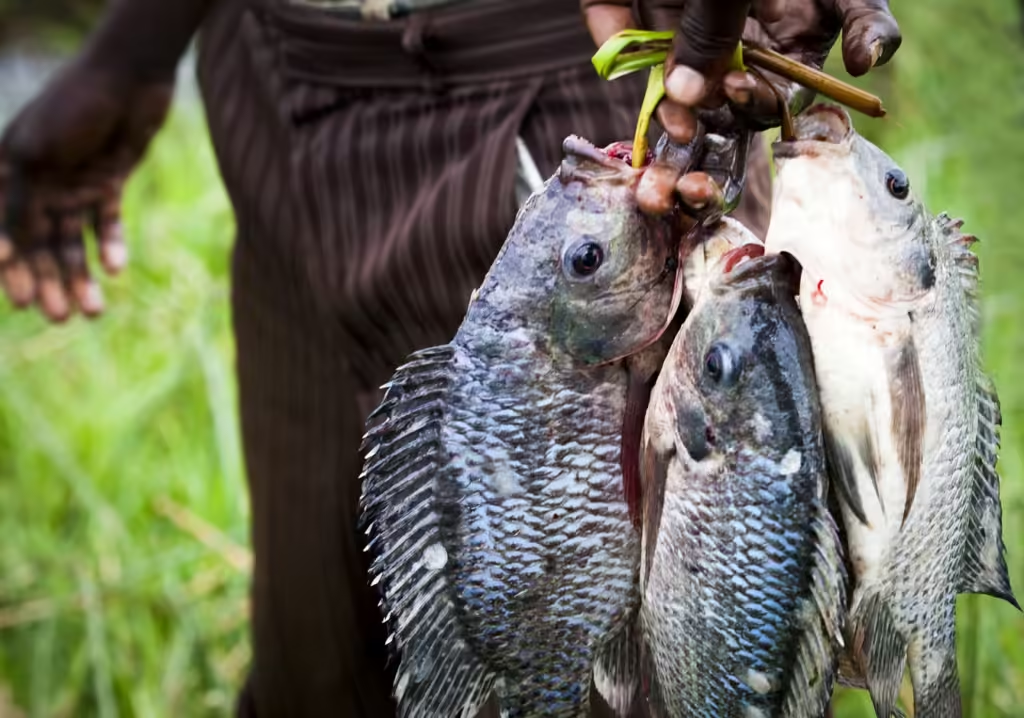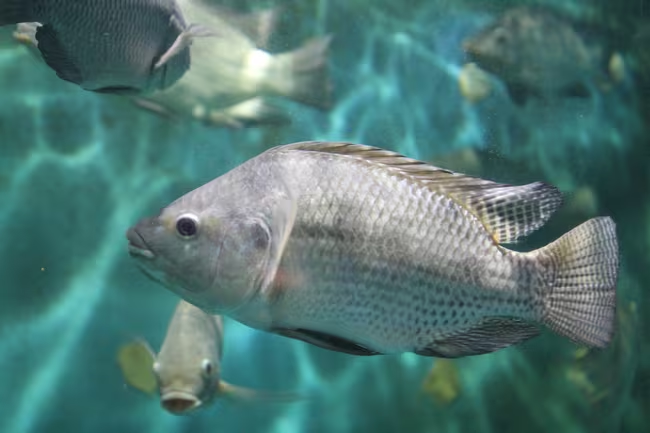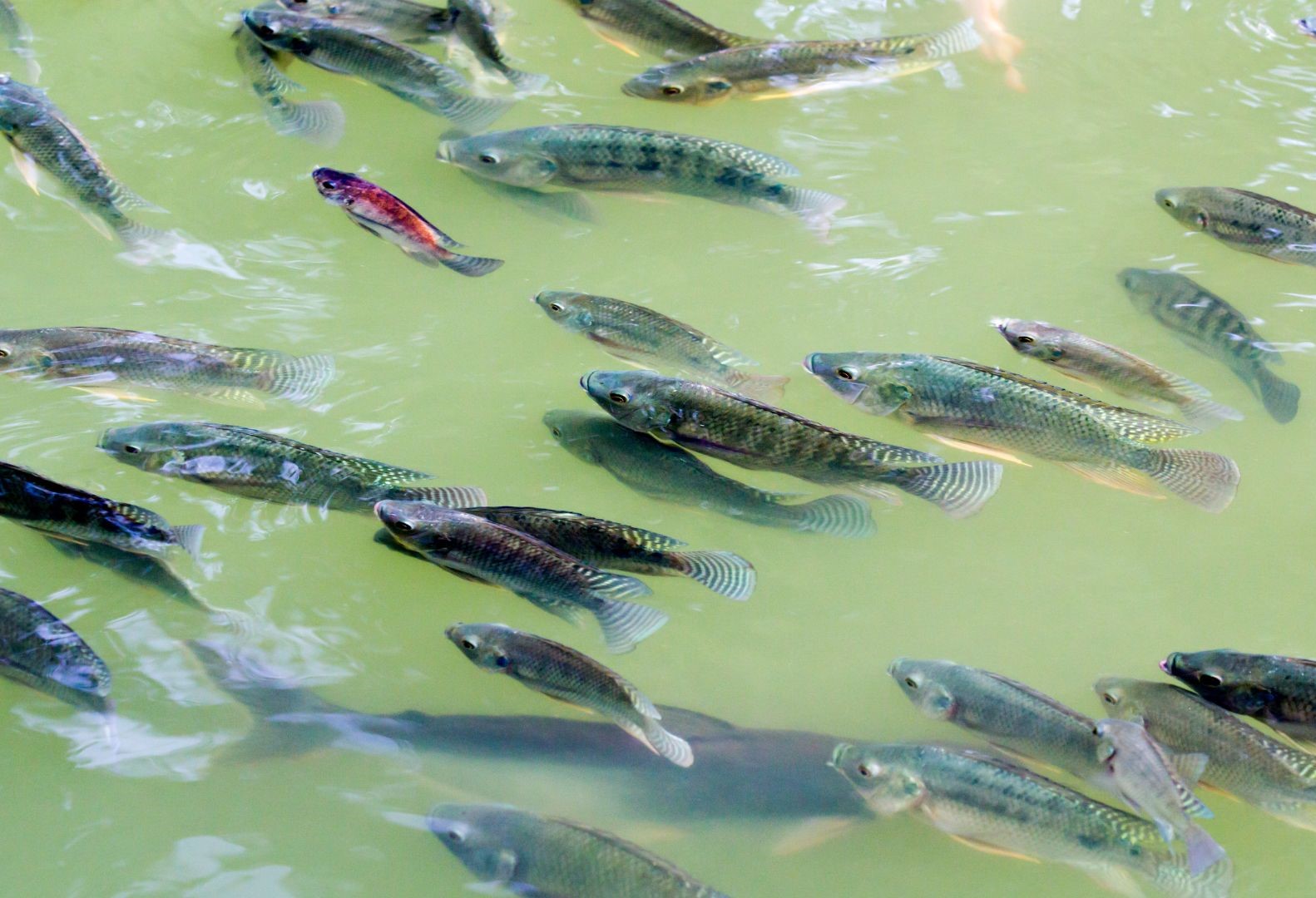Food & Climate
Egypt has thrown one million Nile tilapia fry into the Nile River. Mansoura witnessed this important environmental and economic event.
This step comes within the efforts of the Egyptian state to develop fish wealth and preserve biodiversity.
The Lakes Protection and Fish Resources Development Authority, today, November 24, 2024, threw one million tilapia fry into the Nile River in Mansoura, according to a statement that “Food & Climate” platform received.
The fry were distributed to two main sites: 500,000 units under the train bridge in Talkha City, and 500,000 units in front of Oish El-Hajar village in Mansoura Center.
Executive Director of the Lakes Protection and Fish Resources Development Authority, Major General Al-Hussein Farhat, stated that the goal of releasing fish fry into water bodies is to increase fish stocks and implement the state’s plan to achieve sustainable development in the fisheries sector, which contributes to achieving food security and ensures meeting the needs of citizens from the governorate’s people for fish, as it is one of the most important sources of animal protein.
He also stressed that the Lakes Protection and Development Authority is keen to develop and develop natural fisheries with fry on an ongoing basis, which contributes to improving the conditions of the fisheries sector and supports the plan to develop natural fisheries at the republic level, as these initiatives contribute to enhancing food security by increasing local fish production, which provides sources of animal protein for the population, as well as providing job opportunities for local fishermen, and reflects the importance of cooperation between government agencies to support environmental and economic development.
Tilapia fry are subject to veterinary examination
Engineer Mohamed El-Basati, Director of Dakahlia Region, explained that tilapia fry are subject to veterinary examination before being released into the water body, to ensure their quality and readiness for release, noting that the acclimatization and release of fry operations are carried out in accordance with modern scientific standards followed in this regard.

Egypt faces climate change impacts like water scarcity, drought, and extreme heat, making a resilient aquatic foods sector essential for economic stability and addressing issues like food insecurity, gender inequality, unemployment, and malnutrition, according to “World Fish”.
Water scarcity
Water scarcity challenges aquaculture expansion in Egypt, so it needs Climate-Smart Aquaculture Technologies.
For example, the Advancing Climate-Smart Aquaculture Technologies (ACliSAT) project which concluded in 2023, promoting water-efficient culture systems and improved practices for Nile tilapia. ACliSAT supported 1,000 farmers, trained 45 local experts, and improved postharvest practices, with 75% of results in Egypt.
WorldFish launched the Empowering Women Fish Retailers (EWFIRE) Project in 2018, supporting vulnerable women retailers and processors in Sharkia Governorate. The project created 400 jobs, established 50 new enterprises, and improved profitability for 150 retailers.
The Center for Renewable Energy in Aquaculture (CeREA) project, in partnership with the Royal Norwegian Embassy, aims to develop and scale renewable energy solutions, benefiting 5,000 fish producers by 2027.
WorldFish explores climate-smart solutions like integrated aquaculture-agriculture (IAA) and the In-pond Raceway System (IPRS) to enhance productivity and sustainability, improving water use efficiency and reducing greenhouse gas emissions.

Egypt is adopting solar-powered, climate-smart aquaculture systems, revolutionizing fish farming with efficient and sustainable techniques. The Soybean Excellence Center (SEC) at WorldFish’s Abbassa facility offers training and capacity-building for small-scale farmers, enhancing technical skills and innovative practices.

